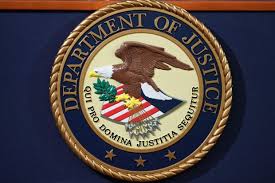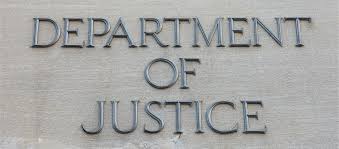Three Pharmaceutical Companies Pay a Total of $122 Million to Settle Kickback Allegations Involving Co-Pay Assistance Foundations

In a significant False Claims Act enforcement action, DOJ announced settlements with three pharmaceutical companies – Jazz Pharmaceuticals, Lundbeck, and Alexion Pharmaceuticals – under which they agreed to pay $122 million to resolve allegations they violated the False Claims Act by paying Medicare of the Civilian Health and Medical Program (ChampVA) copayments for their own products through allegedly independent foundations that the companies used as mere conduits.
The Justice Department and HHS have been conducting a number of major investigations of drug-company funded foundations that have been used to pay patient co-pays under applicable anti-kickback laws.
Medicare and ChampVA patients may be required to make a partial payment (e.g. copayment, coinsurance or deductible) for a specific drug. The AKS statute prohibits a pharmaceutical company from offering or paying, directly or indirectly, any remuneration to induce Medicare or ChampVA patients to purchase a company’s drug. This prohibition extends to copays.
Jazz’s conduct surrounded two drugs, Xyrem, a narcolepsy medication, and Prialt, an injectable severe chronic pain medication.

In 2011, Jazz asked a foundation to create a fund to pay copayments for Xyrem Medicare patients and \the foundation established a “Narcolepsy Fund,” to which Jazz was the sole donor. According to the government, Jazz knew that the fund was almost exclusively used to pay copays for Xyrem (notwithstanding the fact that Xyrem accounted for only a small share of the overall narcolepsy market). The foundation required non-Xyrem patients of competing products to obtain a denial letter from another assistance plan before helping them. During this time period, Jazz raised the price of Xyrem 150 percent.
With respect to Prialt, Jazz asked the same foundation to assist patients with copays of ostensibly severe chronic pain drugs but which in practice almost exclusively paid Prialt Medicare copays. When the foundation was approached by patients seeking assistance with non-Jazz products, the foundation referred the patients elsewhere.
Jazz agreed to pay $57 million to resolve the government’s allegations. Jazz agreed to a five-year Corporate Integrity Agreement.
Lundbeck’s conduct related to Xenazine, the only drug approved to treat chorea associated with Huntington’s disease until 2015 when a generic version became available. Lundbeck was the sole donor to a foundation that ostensibly provided financial support for patients with Huntington’s Disease. Lundbeck referred Xenazine patients with other types of conditions to this foundation, which then paid the Xenazine copays for unapproved uses from the foundation funds. Eventually, the foundation in 2014, discontinued payments for non-approved uses of Xenazine, Lundbeck repurposed some of its prior donations to a “general fund” for patients using Xenazine.

The government also alleged that during this time period, Lundbeck had a policy of not permitting Medicare or ChampVA patients to participate in its free drug program for Xenazine. Instead, in order to generate revenue from Medicare and ChampVA, Lundbeck referred financially needy non-Huntington Disease Xenazine patients for foundation to cover the cost of the drug.
Lundbeck agreed to pay $52.6 million to resolve the claims. Lundbeck agreed to a five-year Corporate Integrity Agreement.
Alexion’s conduct involved Soliris from 2010 to 2016 which was used for two rare blood diseases (PNH) and (aHUS). The cost of soiris can reach $500,000 per year. Alexion made donations to a “Complement-Mediated Disease” (CMD) fund at a foundation to pay the Medicare copay obligations. Alexion told the foundation that it wanted the foundation not to support any CMD diagnosis for reasons other than Soliris therapy. The foundation’s financial support was contingent on the patient taking Soliris.

Alexion agreed to pay $13 million to resolve the government’s allegations. Alexion was not required to enter into a Corporate Integrity Agreement because Alexion made sweeping and fundamental organizational changes, including hiring a new eight-member executive leadership team and changing half of the members of its Board of Directors. In addition, 40 percent of Alexion’s employees are new.















